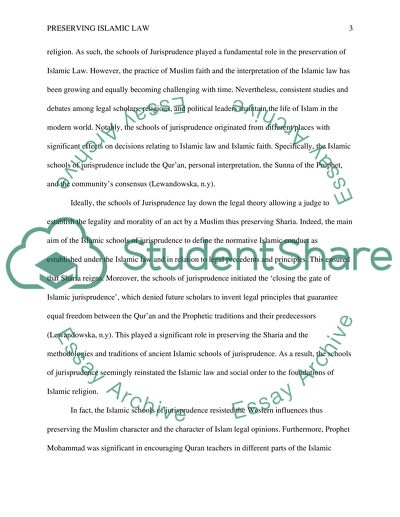Cite this document
(“The Role of the Schools of Jurisprudence in Preserving Islamic Law Essay”, n.d.)
Retrieved from https://studentshare.org/religion-and-theology/1477853-the-role-of-the-schools-of-jurisprudence-in-preserving-islamic-law
Retrieved from https://studentshare.org/religion-and-theology/1477853-the-role-of-the-schools-of-jurisprudence-in-preserving-islamic-law
(The Role of the Schools of Jurisprudence in Preserving Islamic Law Essay)
https://studentshare.org/religion-and-theology/1477853-the-role-of-the-schools-of-jurisprudence-in-preserving-islamic-law.
https://studentshare.org/religion-and-theology/1477853-the-role-of-the-schools-of-jurisprudence-in-preserving-islamic-law.
“The Role of the Schools of Jurisprudence in Preserving Islamic Law Essay”, n.d. https://studentshare.org/religion-and-theology/1477853-the-role-of-the-schools-of-jurisprudence-in-preserving-islamic-law.


